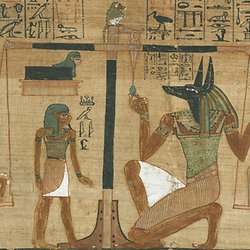Aupmanyav
Be your own guru
Hey Nitai (Would you mind it if we shorten your nick to Nitai? We know it is really Nitai Dasa. But that way we will be taking the name of your deity (nama-japa) and earn some merit in bargain. It is common in India to call children as Rama, Krishna, Mohan, etc. though their names may be different. We call our son as Monu (an derivation from Mohan) because he was very good-looking. Kindly enlighten us of your view). Vidhi translates into method.Niyama normally translates to "rules" (so shivji is right) but that is a common mistranslated (the correct sanskrit word for rules is vidhi). Niyama and yama used in the context of Yoga, have very specific meanings (they are part of a process as Ratikala ji stated.).
Niyama is: precept, restriction, rule, law, limitation, convention, preventing, restraining, determination, necessity or law personified as a son of Dharma and Dhriti.
Dharma is (first page only): Yama, manner, nature, relating to justice or virtue, property, religious merit, law or doctrine, steadfast decree, observance, ordinance, religion, ethical precepts, attribute, propriety of conduct, law or justice personified, bow, that which is established or firm, duty.
Dhriti, a daughter of Daksha Prajapati, is: self-command, courage, keeping, firm bearing, seizing, joy, firmness, satisfaction, holding, resolution or satisfaction personified, constancy, content, will, resolution, steadiness, offering or sacrifice, support.
For those who are not aware, http://spokensanskrit.de/ is an excellent site. It has various Sanskrit-English, English-Sanskrit dictionaries all at one place - Monier-Williams and Apte. Absolutely wonderful.


